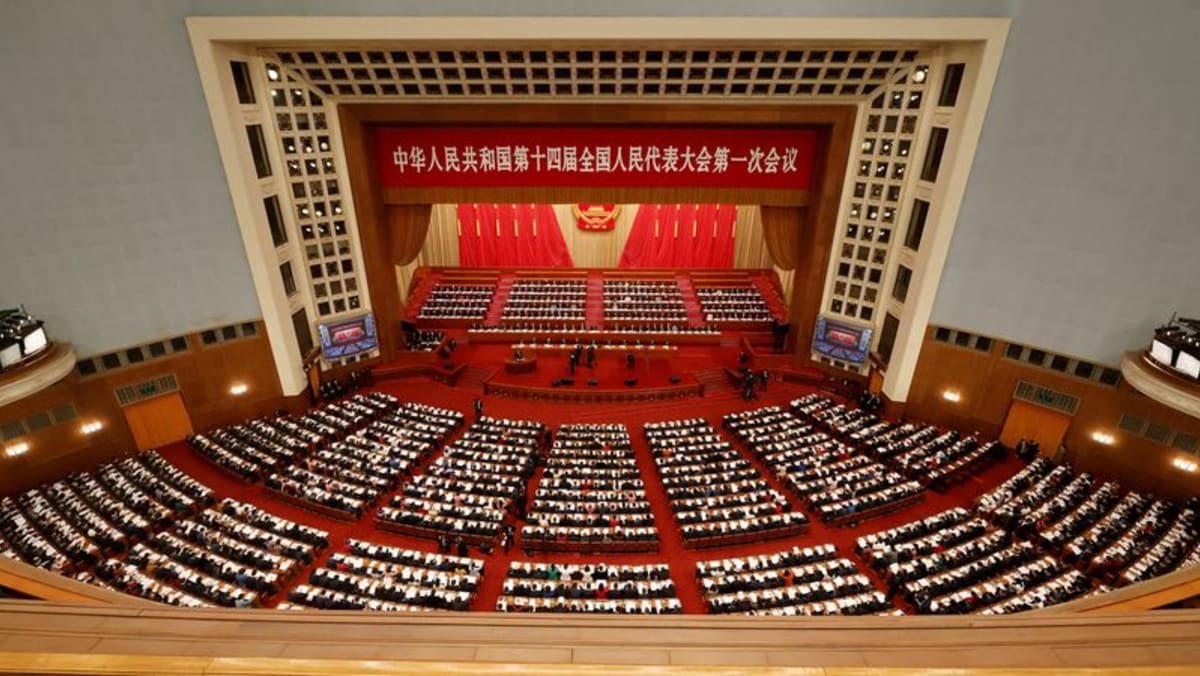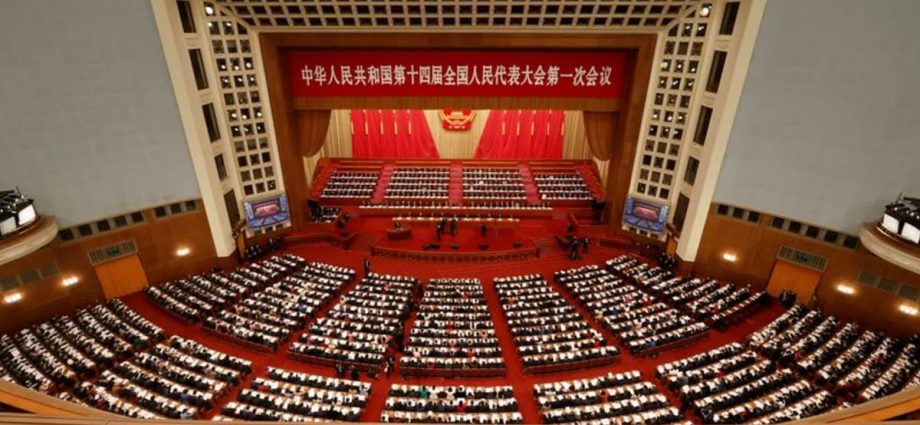
As the challenges stack up, the two sessions could provide indications of potential government action to come.
“Many are looking forward to stimulus packages for the economy. Reinvigoration of post-Covid recovery will be given importance,” NUS’ Dr Lim told CNA.
Still, another observer does not expect the economy to be singled out for special mention.
“If you focus too much on it to the detriment of other areas, it basically sends a signal that maybe the central authorities recognise that there are indeed problems in the economy,” said Dr Hoo.
“I don’t think they would want to over hype all these risks, because by doing so it’s sending negative market sentiment.”
DEVELOPING “NEW PRODUCTIVE FORCES”
Either way, analysts expect a fresh push for productivity and innovation to be made at the two sessions amid the economic troubles.
Specifically, the development of “new productive forces” or “xin zhi sheng chan li” in Chinese, which state media have termed “a recent catchphrase in China’s policy making”.
The phrase was first mentioned by Chinese President Xi Jinping in September last year, during an inspection and research trip in Northeast China.
“It basically means new industries to drive China’s development … like high-end semiconductors, AI, big data, the next Internet,” Dr Hoo told CNA.
He linked it to China’s pursuit of self-reliance and high-quality development, pointing out how this can be seen as a response to external trends such as decoupling – or de-risking as it’s known in Western parlance.
Official data showed that annual foreign investment flows into China shrank for the first time in over a decade last year. Overseas companies invested 1.13 trillion yuan (US$157.1 billion) in China in 2023, an 8 per cent drop on-year.
The value of announced US and European greenfield investment into China dropped to less than US$20 billion in 2022, from a peak of US$120 billion in 2018, according to US-based research firm Rhodium Group.

